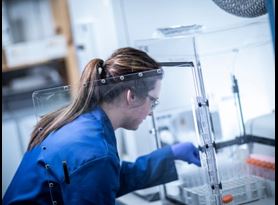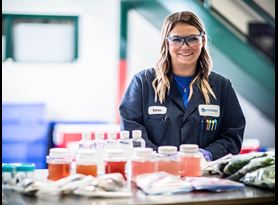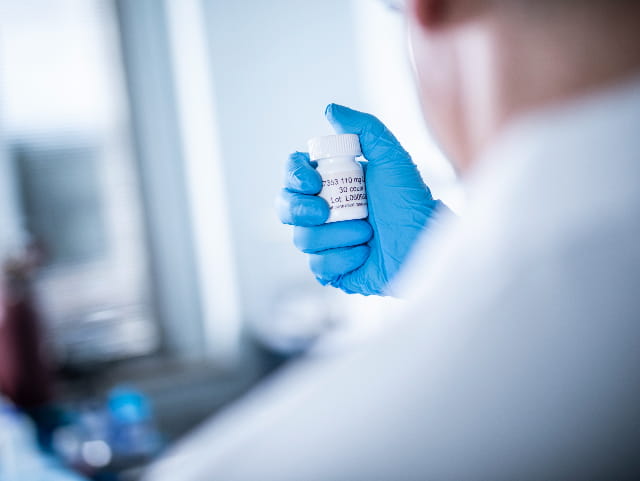Dietary Supplements and Nutraceuticals: What Are They and Are They Safe?
Many people have heard the terms dietary supplements and nutraceuticals before and countless adults and children alike have added them into their everyday diets, but what exactly are they?
Dietary supplements are items that are naturally found in the diet but are supplemented to account for actual or potential deficiencies in your diet. They are not intended to replace a healthy diet, but instead supplement gaps within your current diet. Nutraceuticals are products derived from food sources that provide both nutrition and medicinal benefits. They can improve health, delay the aging process, prevent or slow chronic diseases, increase life expectancy, and/or support the structure and functioning of the body.
Dietary supplements can come in a variety of forms such as tablets, capsules, gummies, powders, and even drinks or energy bars. Popular dietary supplements include vitamins D and B12, minerals such as calcium and/or iron and other products like glucosamine, probiotics, and fish oils. These are especially beneficial for overall health management and are also useful for consumers with certain health conditions. However, we encourage you to speak with your doctor before adding any supplements to ensure they fit within your current lifestyle.
Ensuring dietary supplements and nutraceuticals are safe
As with all supplements or vitamins, it is important to always be alert to the possibility of an adverse reaction and/or side effects, especially when taking a new product. Nonetheless, most dietary supplements on the marketplace for consumers are considered safe. Dietary supplements are regulated by the US Food and Drug Administration (FDA) as food, as they occur naturally in the diet, and are therefore not considered to be drugs. The Agency recommends speaking with your health care professional to discuss whether it is safe to take a particular product.
It is also important to remember that dietary supplements are not intended to treat, diagnose, cure, or alleviate the effects of diseases. Some supplements are helpful in reducing the risk of certain diseases and are authorized to make corresponding claims, such as folic acid supplements reducing the risk of birth defects of the brain and spinal cord.
The regulation of dietary supplements and nutraceuticals
In 1994, the Dietary Supplement Health and Education Act (DSHEA) was signed into law by President Clinton. This new law created framework for the safety and labeling of dietary supplements. Under DSHEA, a firm is responsible for determining that any representations or claims made about the dietary supplements or nutraceuticals they produce resubstantiated by adequate evidence to show that they are not false or misleading. This means that dietary supplements do not need FDA approval to enter the marketplace.
Once a dietary supplement enters the marketplace, the FDA monitors the safety of these products, including monitoring mandatory reporting of serious adverse events. Additionally, DSHEA requires that a manufacturer or distributor notify the FDA if it intends to market a dietary supplement in the U.S. that contains a “new dietary ingredient.” The manufacturer must demonstrate to the FDA why the ingredient is reasonably expected to be safe for use in a dietary supplement. This applies to any ingredient not marketed before October 15, 1994.
If the ingredient was not marketed in the United States before that date, the manufacturer must notify the FDA 75 days before marketing and include information such as why the supplement will be expected to be safe. Often this information is generated through rigorous testing, ensuring impurities are not present within the dietary supplement.
Elemental impurities and label claims
Element has state of the art metals screening to determine heavy metal contamination in dietary supplements. We are also able to verify label claims as to ingredient content, as well as testing the stability of supplements to establish their shelf life.
Element has also validated a screening method for 21 mycotoxins, which has also been applied to screening candy and lozenge matrixes. Utilizing a solid phase extraction procedure to clean up samples and sensitive liquid chromatography with tandem mass spectrometry (LC-MS/MS) methodology, limits of detection were well below necessary regulatory limits for mycotoxins. While the FDA requires a limit of 20 ng/g for aflatoxins, the limit of quantitation (LOQ) of Element’s mycotoxins method is 0.4 ng/g.
Finally, Element can deconstruct dietary supplements and nutraceuticals to re-build, or reformulate, them as needed, in addition to performing a general screen for contamination which includes a search for added drugs. We have found that a large number of dietary supplements marketed for sexual dysfunction are spiked with significant amounts of erectile dysfunction drugs, which are not legal to be added to supplements. Element has also developed a PDE-5 Inhibitor screen to identify such adulterated products. We have also found barbiturates and sedatives in supplements marketed for pain relief and have targeted screens for those substances.
Partnering with a trusted lab to ensure the safety of supplements
While there are many benefits of partnering with lab for outsourcing, where do you begin in finding suitable, beneficial partnerships? Some of the major things to look for when seeking out an outsourcing partner, specifically for method development, are the three E’s: equipment, experience, and expertise.
Equipment should be up-to-date and able to meet dynamic regulatory needs. Having a wide range of equipment is another significant benefit, as the most suitable instrumentation can be applied, and multiple analytical methods can be developed simultaneously. A strong indicator of future success is a proven track record of success and experience, both from an organizational standpoint and the scientists that will be responsible for method development and sample analysis. Ideally the company will have experience with similar analytes and matrixes. Aside from scientific experience, having regulatory experience with method development and validation minimizes risk altogether.
Element’s highly trained and experienced chemists provide extensive testing and product development services. However, our capabilities extend far beyond just testing; we provide support throughout the entire product development process. If you’d like to learn more, or are ready to start your project, contact us today.
Find related Resources
Related Resources
More from Element

Microbiology and Toxicity Testing
Element’s experts keep abreast of the latest analytical methods, providing a vast array of tests that determine the microbiology and toxicity levels in soils and liquids according to customers’ specifications and government regulations.

Food Testing
Element offers a comprehensive food testing package to help you deliver safe and quality food products to market quickly.

Contamination Testing
Find out how Element characterizes impurities, determines their source and prevents them from reoccurring through contamination testing.
Sign Up for Free Resources
Visit Element's email subscription center to receive the latest industry news, technical whitepapers, case studies, webinars, and upcoming events.


